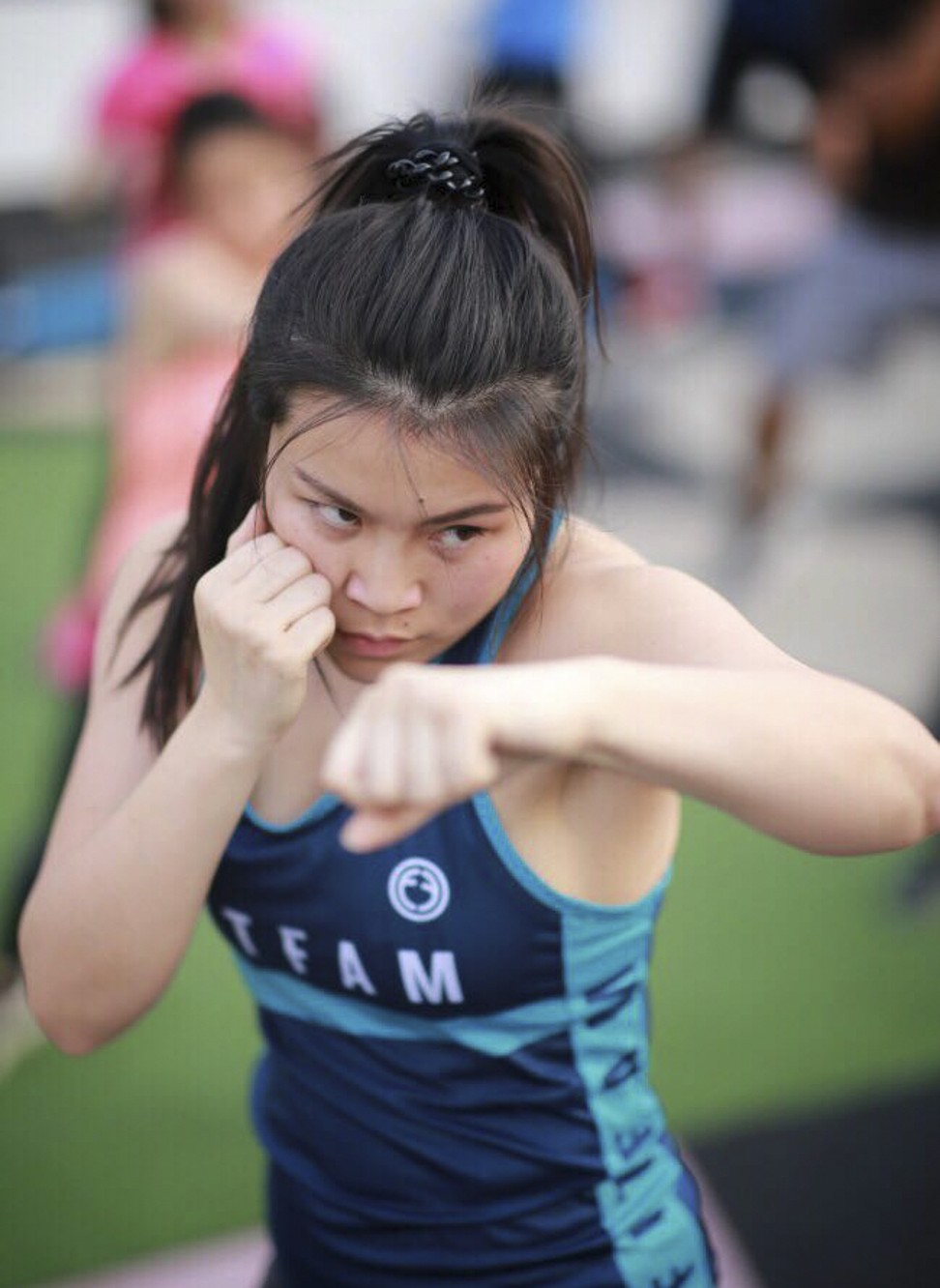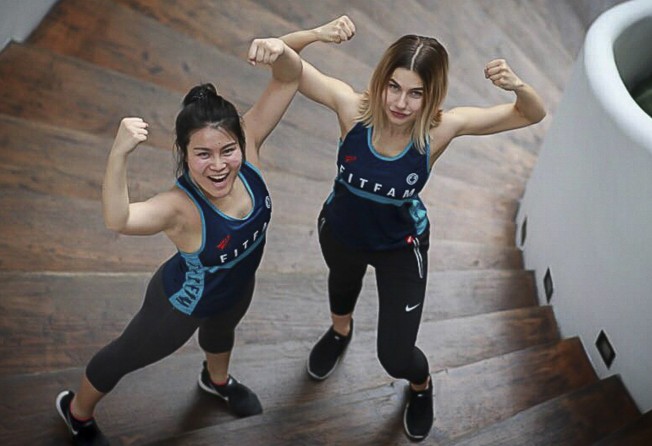
China’s fitness revolution: young women getting that gym body, and showing it off in selfies is part of the experience
Social media posts about marathon training, joining the hottest new ‘fitness community’ or brand name yoga studio – China’s middle class young have been swept up in a fitness craze and see their lifestyle as a marker of success

China’s rising, 300 million-strong middle class have spurred a revolution in the fitness and wellness arena over the past two years, with entrepreneurs rushing in to meet the demand.
Before Xi Jinping’s rise to power in 2012, the luxury goods market took off as wealth in China grew and consumers latched on to logos as a way of denoting their status. Yearly sales of luxury goods in China accordingly tripled between 2007 and 2011.
President Xi’s crackdown on corruption in the years since, combined with a focus on serious pollution issues and food-safety scandals, has also prompted twenty- and thirtysomethings in China – sometimes called the post-80s generation – to shift their focus from luxury goods and wealth to something ostensibly more valuable: their health.
Xiaowei Zhang, 31, is a retail space planner and store designer, originally from the southwestern city of Chongqing, and now based in Shanghai. She began her journey to a fitness-focused lifestyle as an international student in the United States, where going to the gym and practising yoga is a normal part of middle-class life.
“When I moved back to Shanghai I stopped for a while, but after one year of not being very active I felt my physical condition was not as good as before. Work is very stressful, that is quite common in China’s big metropolitan areas, so I started running again, and found it a great distraction from work.

“Then I started going to the gym again, and I just tried everything. I do body combat, body pump, spin classes and more yoga,” Zhang explains.
Two years ago, she became involved with a fledgling and free exercise group in Shanghai, called FitFam, which meets in different locations. Volunteer instructors put participants through their gruelling paces. Over two years, its user base has grown from a few hundred to more than a thousand participants.
“The post-80s generation have reached a stable position in their career, they have experienced a lot of new trends, and they care more about their health and nutrition instead of just their work.
“Now they are spending more time and money on their health, and this is also why sports have become more trendy, because it improves personal health,” Zhang says, adding this generation value their health and fitness much more than did their parents.
Helen Tang, 26, now competes in the bikini section of bodybuilding competitions in China, and works as both a personal trainer and an instructor at Shanghai’s first F45 franchise. For this fast-growing organisation, “F” stands for “functional training” and 45 is the number of minutes in its classes.
It first started in Australia and is expanding around the world, and spread to China’s largest cities last year. Tang’s own fitness journey started only a little over a year ago, when a move from working in hospitality to a part-time job in operations at a gym sparked her interest.
The post-80s generation have reached a stable position in their career, they have experienced a lot of new trends, and they care more about their health and nutrition
Strong and freshly tanned from a recent holiday to Thailand, Tang is beautiful, but not in the traditionally Chinese way that prizes a willowy figure and pale skin. According to Tang, who lives with her grandmother in Shanghai, it was a difficult transition for people around her at first.
“[My grandmother] totally cannot understand why I would want to get so big, she thinks my shoulders are so wide and every day she worries so much, but now she has started to accept it. She sees the way my body is changing and it’s kind of amazing, and she thinks I can make a good career [in the fitness industry],” Tang says. She also notes that the young women she trains as clients “all say, ‘I want to look like you’”.
For many Chinese consumers, it is not enough to introduce fitness into their lifestyle for health’s sake. There is also a keen desire to show it off. Posting on social media about marathon training, and taking selfies in the gym. Joining the hottest new “fitness community” or brand name yoga studio is a way that urban, middle-class Chinese can hold up their lifestyle as a marker of success to others in their peer group.
“So many studios have opened in the last two years, and now it’s become like a fashion to do sport. Some might not want to go to the gym, but they come to take selfies and wear nice, sporty clothes,” Tang says.

“It’s kind of fashion, if everyone else is going, I should go, too. I think they just want to show their lifestyle is super cool because they go to the gym.”
Murat Erbaytan is a Turkish fitness professional who has lived in Shanghai since 2003. He opened what was then only the second accreditedCrossFit gym in the city almost five years ago.
There are now more than 120 officially accredited CrossFit gyms in China, with many more unaccredited CrossFit gyms also dotted around the country. For him, what motivates people to embrace a healthy lifestyle is less important than the fact that people are getting out and doing something intrinsically good for them.

“It’s the same as going to nice restaurants and taking photos of your food, it’s about showing off, whatever your motivation is. You don’t need to do CrossFit or some specific fitness regimen, as long as you are doing something for your health, I am happy with that,” he says.
“Running on the street? Great! Yoga? Great! If that selfie motivates you, great, do that, too! As long as people are choosing a healthier lifestyle, I am happy.”